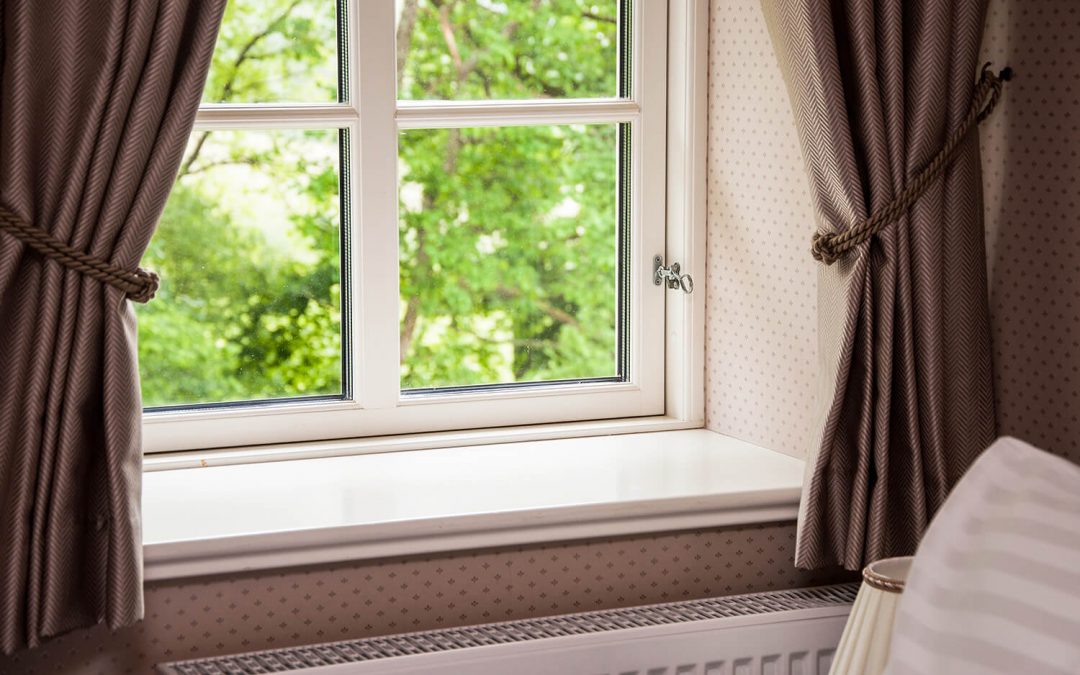
Nov 28, 2018 | Guides
What Are the Different Types/Grades of Glass?
Whatever the reason, when you decide that you need to install new windows in your home, you want to make sure that they are the right type. You don’t need to be an expert in order to pick out the right type of window for your home. All it takes is a small amount of research to understand the different types of glass and the different situations that they are suited for. Here’s everything you need to know when deciding on the type of glass for your next set of windows.
Float Glass
This type of glass is named after the process involved in its manufacture. Molten glass is formed into flat panels by floating it on top of tin, which produces large and smooth panels. This is the form that basic sheets of glass take before they are cut and treated prior to fitting. They may also be upgraded in other ways prior to their fitting in position.
Safety Laminated Glass
By fusing multiple layers of glass together around an internal layer of polyvinyl butyral (PVB), it is possible to create extra-strong glass, suitable for applications where security and resistance are of paramount importance. The glass is treated with both high heat and pressure to create an extra-strong panel. Another advantage to this type of glass is that it will stay in place in its frame should it be broken. This makes it safer than other forms of glass, in addition to being more secure. This is the type of glass that is used in the windscreen of cars, as it ensures that any objects that impact the glass will not injure the occupant, as well as preventing shards of glass from being sprayed over the interior.
Tinted Glass
Tinted glass is glass to which colour is added. This is usually done to enhance privacy but might also be used as a means of reducing the amount of heat and sunlight allowed through. Tinted glass is also used to protect those on the other side from UV rays. This type of glass is usually seen on cars, skylights, and decorative panels. However, it is also sometimes used on homes and other buildings to enhance the privacy of the occupants.
Acoustic Glass
Acoustic glass is excellent for reducing the amount of outside noise that makes its way into your home. If your property is located near to a motorway, busy road, airport, or a similarly noisy area, acoustic glass will provide reliable sound insulation. Acoustic glass keeps unwanted noise from disturbing you inside your own home, including the noise of rain hammering against roof windows and skylights. Living near a busy road or motorway can be more stressful than it needs to be without acoustic glass to keep the noise at bay. Acoustic glass comprises two, sometimes more, sheets of glass which are bonded together using specialised acoustic interlayers. Different types of glasses offer different benefits and are best suited for different situations. It can be daunting at first if you aren’t familiar with the range of glass options on offer, but with a bit of research, you can learn all you need to about your glass options and settle on the right type for your needs. If you would like to learn more, give us a call today.

Nov 22, 2018 | Guides
What Does FENSA Accredited Mean?
Whenever a homeowner in the UK replaces windows, doors, or roof lights in their home, they must ensure that they conform to certain standards. In particular, they must comply with the current Building Regulation standard, and meet the necessary standards of thermal performance. The Fenestration Self-Assessment Scheme (FENSA) was bought in, with the encouragement of the UK government, by the Glass and Glazing Federation (GGF), along with a number of other industry bodies.
It is the responsibility of the homeowner to ensure that they obtain a certificate from a Competent Person Scheme. These usually come from the Local Authority Building Control, or from FENSA.
Who Are FENSA?
FENSA are one of the most prominent bodies in the double-glazing industry. They monitor and certify double glazing businesses across the country, ensuring that they are adhering to all the relevant building regulations. The goal is for FENSA accreditation to serve as a seal of approval, indicating that they are consistently meeting the high standards required for window and door installations.
What Does FENSA Accreditation Mean?
FENSA regularly assesses their members (including us) on an ongoing basis, rather than awarding the accreditation and then leaving it at that. As a result, consumers can be certain that FENSA-accredited businesses will provide work that is fully compliant with the relevant building regulations. This gives homeowners total peace of mind.
The double-glazing industry used to be notorious for using cold calling to drum up business, and for the prevalence of so-called cowboy outfits who would perform shoddy work with little care for the homeowner or their property. Any installer who isn’t able to meet the standards of the independent assessments won’t receive FENSA accreditation. When you hire a FENSA-accredited business, you can be sure that they will do the job properly.
Types of Checks
- As part of the accreditation process, here are some of the key checks that are carried out:
- Pre-approval inspection, which includes an assessment of the company’s technical surveyor and the competencies of the installer.
- Finance checks.
- Assessment of consumer contract documents to ensure that they offer clear terms and conditions.
- Assessment of guarantees and warranties to ensure that they are clearly written and relayed to the customer prior to the acceptance of the contract and the subsequent installation
Benefits of Hiring FENSA Accredited Companies
When you hire a FENSA accredited installer like us, you will be given a FENSA certificate on completion of the installation. This certificate is proof that the work and property are compliant with building regulations, meaning that there is no need for separate assessments from the local authority building control.
FENSA registered companies are required to give consumers a guarantee or warranty which covers the cost of any rectification work that is required for a period of up to 10 years following installation.
If a FENSA accredited business takes any kind of deposit prior to installation, they must provide the customer with some form of deposit indemnity. Deposits must be guaranteed either by a deposit indemnity scheme or by credit card protection.
If you ever find yourself needing to have new doors or windows fitted, or you decide to upgrade to double glazing, using a FENSA-accredited business is the way to go. Not only can you be certain that the work will be completed to a high standard, you will also be protected financially should there be any issues.


